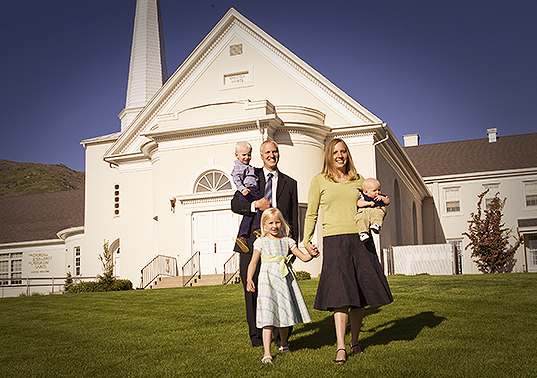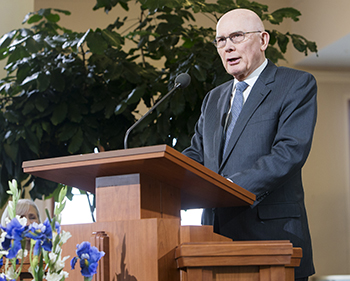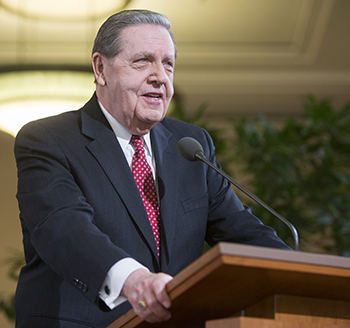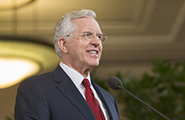
The Church recently encouraged laws and efforts to preserve religious liberties while maintaining respect and fairness for those with differing beliefs. In a January 27 press conference from Church headquarters in Salt Lake City, Utah, Elder Dallin H. Oaks from the Quorum of the Twelve Apostles stated the following:
“The Church of Jesus Christ of Latter-day Saints asserts the following principles based on the teachings of Jesus Christ and on fairness for all, including people of faith:

Elder Dallin H. Oaks
- We claim for everyone the God-given and constitutional right to live their faith according to the dictates of their own conscience, without harming the health or safety of others.
- We acknowledge that the same freedom of conscience must apply to men and women everywhere to follow the religious faith of their choice, or none at all if they so choose.
- We believe laws ought to be framed to achieve a balance in protecting the freedoms of all people while respecting those with differing values.
- We reject persecution and retaliation of any kind, including persecution based on race, ethnicity, religious belief, economic circumstances, or differences in gender or sexual orientation.
“We call on local, state, and the federal government to serve all of their people by passing legislation that protects vital religious freedoms for individuals, families, churches, and other faith groups while also protecting the rights of our LGBT citizens in such areas as housing, employment, and public accommodation in hotels, restaurants, and transportation—protections which are not available in many parts of the country.”
At the same press conference, Elder Jeffrey R. Holland of the Quorum of the Twelve Apostles said that people of faith must maintain their constitutional right to live according to their religious beliefs, including the ability to choose professions and employment or serve in public office without intimidation, coercion, or retaliation from others.

Elder Jeffery R. Holland
Elder Holland said that “accommodating the rights of all people—including their religious rights—requires wisdom and judgment, compassion, and fairness, adding that “nothing is achieved if either side resorts to bullying, political point scoring, or accusations of bigotry. These are serious issues, and they require serious minds engaged in thoughtful, courteous discourse.”
“We must find ways to show respect for others whose beliefs, values, and behaviors differ from ours while never being forced to deny or abandon our own beliefs, values, and behaviors in the process,” he said. “Every citizen’s rights are best guarded when each person and group guards for others those rights they wish guarded for themselves.”
Elder Holland referred to the official statement made by the Church in 1835, a statement formally incorporated into the Doctrine and Covenants as section 134, which says, “First, that all of us are accountable to God for the responsible exercise of our religious beliefs, and we are calling on our fellow citizens to be responsible in exercising their religious freedom. Secondly, that scripture sets out the proper role of government in protecting the public interest without encroaching on free exercise, what it calls ‘the freedom of the soul.’ Some 180 years later, the determination of The Church of Jesus Christ of Latter-day Saints to be responsible citizens while also defending religious liberty remains undiminished.”
Related Articles


